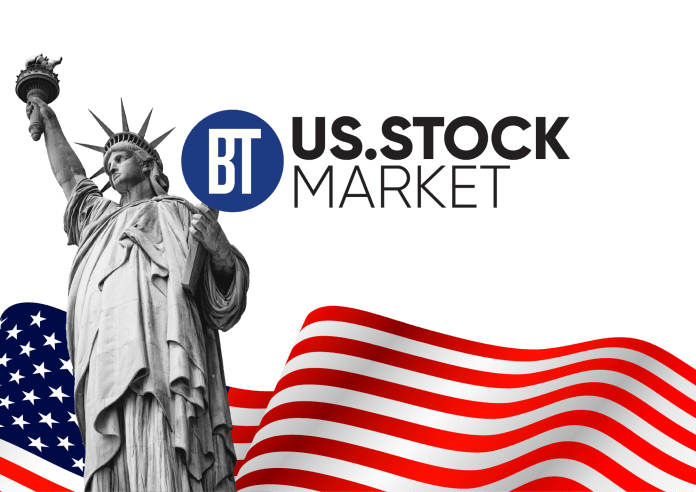U.S. Stocks are drifting Monday as Wall Street’s wild recent moves calm a bit.
The S&P 500 was 0.2% higher in its first trading after careening from months of sharp losses to its best week of the year. The Dow Jones Industrial Average was up 41 points, or 0.1%, as of 11 a.m. Eastern time, and the Nasdaq composite was 0.3% higher. More stocks were falling on Wall Street than rising.
The flashpoint for the stock market’s movements in both directions has been what the bond market is doing, and it was regressing Monday following its own extreme moves.
The yield on the 10-year Treasury rose to 4.61%. That’s up from 4.57% late Friday, but it’s still below the perch above 5% that it reached last month, its highest level since 2007. High yields hurt prices for stocks and other investments, while slowing the economy and raising the pressure on the financial system.
This upcoming week looks to have fewer big events on the calendar that could shake markets. It’s a slower week for corporate profit reports, with roughly 50 companies in the S&P 500 set to say how much they earned during the summer. That’s down from about 150 a week before.
Constellation Energy rose 6.5% after it also reported better results for the latest quarter than analysts expected.
Berkshire Hathaway fell 1.5% after it reported its results for the latest quarter over the weekend. It reported a loss, but that was mostly because of drops in the value of some of its investments on paper. Looking only at operating profit, Warren Buffett’s company beat analysts’ expectations.
Even more companies than usual in the S&P 500 have been beating Wall Street’s profit forecasts this reporting season. The index looks to be on pace to deliver its first growth in earnings per share in a year, according to FactSet.
“Don’t worry,” strategists at Bank of America led by Savita Subramanian wrote in a BofA Global Research report. “Earnings were fine.”
Trading of WeWork’s stock was halted amid speculation about its financial health. It’s plunged 98.5% this year to less than $1.
The events with perhaps the most potential to shake markets this upcoming week are speeches set for officials from the Federal Reserve.
Last week, the Federal Reserve held its main interest rate steady for a second straight time, leaving it at its highest level since 2001. It’s jacked up its federal funds rate from nearly zero early last year in hopes of getting high inflation under control.
Perhaps more importantly for markets, Fed Chair Jerome Powell also hinted that a swift rise in Treasury yields and related tumult in financial markets could act as substitutes for further hikes to rates if they remain “persistent.” That raised hope that the Fed may be done hiking interest rates, and it also pushed traders to bet the central bank could begin cutting rates in the summer.
Cuts to rates can act like steroids for financial markets. But if the 10-year yield falls too much, it could push the Federal Reserve to worry about upward pressure on inflation and encourage it to hike rates further.
Over the last couple years, Wall Street has built up hopes several times that cuts to interest rates may be on the horizon, only for them to get dashed by Fed officials pledging to keep interest rates high for a long time to ensure inflation goes down.
At the end of this week will come a preliminary report showing how much inflation U.S. households are preparing for. Such inflation expectations have been key for the Fed, which fears too-high expectations could trigger a vicious cycle that keeps inflation high.
In the oil market, crude prices gained after Saudi Arabia and Russia reiterated their commitment to maintaining oil supply cuts of more than 1 million barrels per day until the end of the year.
A barrel of benchmark U.S. crude gained 1.4% to $81.61. Brent crude, the international standard, rose 1.2% to $85.92 per barrel.
In stock markets abroad, indexes were mixed in Europe after jumping across much of Asia.
South Korean stocks jumped 5.7% after the government restored a ban to prevent investors from betting on stock prices to fall by borrowing shares and selling them.
Japan’s Nikkei 225 index gained 2.4%, and Hong Kong’s Hang Seng jumped 1.7% – AP









